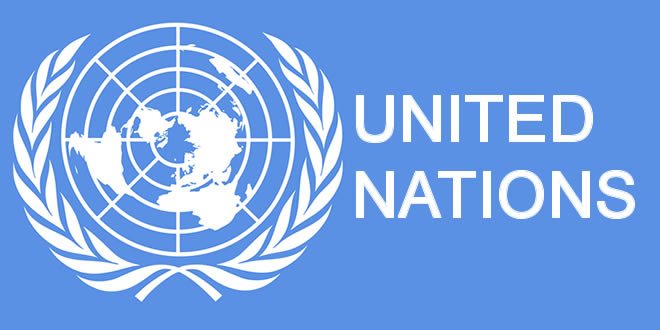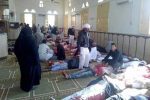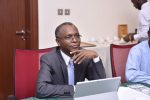Nigeria Calls For Safety Of UN Peacekeepers


Nigeria has stressed the need to ensure that all UN peacekeepers deployed to troubled spots globally were safe in the course of discharging their duties.
Nigeria’s Permanent Representative to the UN, Prof. Tijjani Bande, stated this at the Security Council ‘Open Debate on the UN Peacekeeping Operations: their potential contributions to the overarching goal of sustaining peace’.
“We wish to reiterate that, in view of the significant role of peacekeepers, it is imperative for all concerned to make efforts to ensure the safety of all peacekeepers,” Bande said.
According to him, peacekeeping is one of the veritable tools at the disposal of the UN for performing one of its three critical founding objectives.
“The doctrine of prevention in peacekeeping operations is not just about stopping conflicts from happening or from escalating; it is about continued engagement, from the early signs of conflict to the post-recovery phase.
“Peace keeping and peace building have thus become so interwoven that they may be considered simultaneously at each conflict phase.
“Even where there is yet no need for the deployment of force, the threat of force, as a deterrent, may dissuade parties from abandoning an existing peace process.
“There is need to recognize that no two conflicts are the same, so a one-size-fits-all approach would always be misleading,” he said.
The Nigerian envoy pointed out the analytical framework for a peacekeeping mandate needed to be unique to the conflict and to its environment only.
He said an effective collaboration with regional arrangements in the drafting of peacekeeping mandates would be invaluable, considering the obvious advantages that such regional bodies have, including deeper insight on the conflict.
The environment, the people and their culture and sensitivities, as well as the history of similar situations also play their parts, he said
Bande also frowned at a situation where peace agreements were drafted in foreign capitals by people who did not have complete knowledge of all the factors responsible for the conflicts.
The Nigerian ambassador said: “A critical element in Sustaining Peace is the opportunity for reconciliation.
“Peace initiatives that allow stakeholders to freely initiate and conclude negotiations based on ‘give and take’ concessions, are most likely to attain enduring levels of compromise and stability.
“A situation where parties are encouraged to sign peace Agreements drafted in foreign capitals, with presumed knowledge of the issues, and of solutions that are presumably suitable and acceptable to the parties, may not achieve the desired results.”
Bande said a very important component of the Sustaining Peace agenda was the engagement of the civil society.
“In the past, restriction of peace negotiations to armed parties have proven to be fatally flawed as those parties may have limited, short-sighted political objectives that do not lead to a sustained peace.
“The involvement of youths, women, religious and community leaders have intrinsic value that supports peace on a continuing basis,” he said.
Nigeria is the world’s 14th largest troops contributing nation to UN peacekeeping operations.
According to the latest data published by the United Nations Peacekeeping, Nigeria contributed a total of 2, 170 peacekeeping personnel in 2016.
According to the report, Nigeria ranks eighth in Africa after Ethiopia, Burkina Faso – 3,036, Egypt – 2,889, Ghana – 2,972, Rwanda – 6,146, Senegal – 3,617 and Tanzania – 2,341.
The report showed that as at Aug. 31, 2016, Nigeria had provided 403 policemen, 46 military experts and 1,721 troops, out of which 232 were females.
According to the data, the largest contributors to UN peacekeeping missions are Ethiopia with 8,326, India with 7,471 personnel and Pakistan which contributed 7,161.
Jamaica, Guinea-Bissau, Mozambique, Latvia, and the former Yugoslav Republic of Macedonia, contributed the least with one each.








